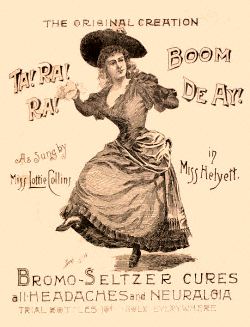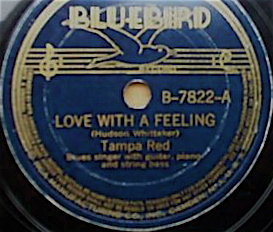Related Research Articles

"Street Fighting Man" is a song by the English rock band the Rolling Stones, written by the songwriting team of Mick Jagger and Keith Richards. Considered one of the band's most popular and most controversial songs, it features Indian instrumentation contributed by Brian Jones, which has led to it being characterized as a raga rock song. It also features controversial and ambiguous lyrics about armed revolution. In the United States, it was released as a single in August 1968, while it was not released in the United Kingdom until four months later on the Beggars Banquet album, where it opened side two. The B-side of the American single featured "No Expectations", considered one of the final Stones tracks in which founding member Jones played a significant role in its construction. And it was the final Rolling Stones single on which Jones performed.

"On Ilkla Mooar Baht 'at" is a folk song from Yorkshire, England. It is sung in the Yorkshire dialect, and is considered the official anthem of Yorkshire. It is sung to the hymn tune "Cranbrook", composed by Thomas Clark in 1805; while according to Andrew Gant, the words were composed by members of Halifax Church Choir "some 50 years after Clark wrote his melody", on an outing to Ilkley Moor near Ilkley, West Yorkshire. It is classified as numbers 2143 and 19808 in the Roud Folk Song Index.

"This Land Is Your Land" is a song by American folk singer Woody Guthrie. One of the United States' most famous folk songs, its lyrics were written in 1940 in critical response to Irving Berlin's "God Bless America". Its melody is based on a Carter Family tune called "When the World's on Fire". When Guthrie was tired of hearing Kate Smith sing "God Bless America" on the radio in the late 1930s, he sarcastically called his song "God Blessed America for Me" before renaming it "This Land Is Your Land".
"She Moved Through the Fair" is a traditional Irish folk song, with a number of iterations, that has been performed and recorded by various artists. The narrator sees his lover move away from him through the fair, after telling him that since her family will approve, "it will not be long [love] 'til our wedding day". She returns as a ghost at night, and repeats the words again, intimating her own tragic death and the couple's potential reunion in the afterlife. There are numerous alternate versions, some sung about a male lover, with different lyrics, such as "Our Wedding Day" and "My Young Love Said to Me", among others.

"Seven Drunken Nights" is a humorous Irish folk song most famously performed by The Dubliners. It is a variation of the English/Scottish folk song "Our Goodman". It tells the story of a gullible drunkard returning night after night to see new evidence of his wife's lover, only to be taken in by increasingly implausible explanations.
"Godiva's Hymn", "Engineer's Hymn" or "Engineers' Drinking Song" is a traditional drinking song for North American engineers. Versions of it have been associated with the Army Corps of Engineers, as well as MIT, MTU, and various other universities, and is now often performed by the MIT a cappella group The Chorallaries. In many university engineering faculties, military engineering corps and other engineering organizations and societies, Lady Godiva is a school icon or mascot.

"Pretty Baby" is a song written by Tony Jackson during the Ragtime era. The song was remembered as being prominent in Jackson's repertory before he left New Orleans in 1912, but was not published until 1916.

"Love Don't Live Here Anymore" is a song written by Miles Gregory and originally recorded by Rose Royce. It was produced by former Motown songwriter and producer Norman Whitfield for Whitfield Records. Lead vocals were sung by Gwen Dickey and the song was released as the second single from their third studio album Strikes Again. The song was developed as a result of producer Whitfield's interest to work with Paul Buckmaster, the British arranger and composer. Together they asked songwriter Miles Gregory to write a song for them. Gregory's undergoing medical care for his deteriorating physical health became the inspiration behind the song. "Love Don't Live Here Anymore" incorporated the use of the Pollard Syndrum TwinDrum, and was one of the first songs to effectively use the sound reverbs of the instrument. The song was mainly recorded at music contractor Gene Bianco's house, where Dickey was present during the recording.
"Drunken Sailor", also known as "What Shall We Do with a/the Drunken Sailor?" or "Up She Rises", is a traditional sea shanty, listed as No. 322 in the Roud Folk Song Index. It was sung aboard sailing ships at least as early as the 1830s.
"Limerick" is a traditional humorous drinking song with many obscene verses. The tune usually used for sung limericks is traditionally "Cielito Lindo," with the words arranged in the form of a limerick.

"Ta-ra-ra Boom-de-ay" is a vaudeville and music hall song first performed by the 1880s. It was included in Henry J. Sayers' 1891 revue Tuxedo in Boston, Massachusetts. The song became widely known in the 1892 version sung by Lottie Collins in London music halls, and also became popular in France.

"Tell Her No" is a hit single written by Rod Argent and included by English rock band the Zombies on their debut album The Zombies in 1965. It peaked at No. 6 on the Billboard Hot 100 chart in the United States in March 1965 and was one of three big American hits by the Zombies. "Tell Her No" was only a minor hit for the Zombies in their native Britain, where it peaked at No. 42 on the UK Singles Chart in February 1965.

"Red Wing" is a popular song written in 1907 with music by F.A Mills and lyrics by Thurland Chattaway. Mills adapted the music of the verse from Robert Schumann's piano composition "The Happy Farmer, Returning From Work" from his 1848 Album for the Young, Opus 68. The song tells of a young Indian girl's loss of her sweetheart who has died in battle.
"Oh, Dear! What Can the Matter Be?", also known as "Johnny's So Long at the Fair" is a traditional nursery rhyme that can be traced back as far as the 1770s in England. There are several variations on its lyrics. It has Roud Number 1279.

Midwinter Graces is the eleventh solo studio album by singer-songwriter Tori Amos, released on November 10, 2009, through Universal Republic Records. It is the first seasonal album by Amos and is also notable for marking her return to a more classical, stripped-down, baroque sound with various synths, string instruments, the harpsichord, and Amos's own signature Bösendorfer piano at center stage, once more. The album, like previous releases from Amos, is available in a single-form CD or a deluxe edition, which includes three bonus tracks, a twenty-page photo book, and a DVD containing an interview with Amos. The standard edition was not released in the US or Canada. Midwinter Graces became Amos's lowest-charting album on the Billboard 200, peaking at number 66.

"You've Got to Love Her with a Feeling", or "Love with a Feeling" as it was originally titled, is a blues song first recorded by Tampa Red in 1938. Numerous blues artists have interpreted and recorded the song, making it a blues standard. When Freddie King adapted it in 1961, it became his first single to appear in the record charts.

"You Don't Love Me" is a rhythm and blues-influenced blues song recorded by American musician Willie Cobbs in 1960. Adapted from Bo Diddley's 1955 song "She's Fine She's Mine", it is Cobbs' best-known song and features a guitar figure and melody that has appealed to musicians in several genres.
"The Way You Love Me" is a song recorded by American R&B singer-songwriter Keri Hilson featuring rapper Rick Ross from the former's second studio album No Boys Allowed (2010). It was written by Stanley Benton, India Boodram, Paul Dawson, Hilson, Kesia Hollins, Jazmyn Michel as well as William Roberts, and was produced by Polow da Don. "The Way You Love Me" surfaced online on November 7, 2010; its explicit lyrics fueled controversy, with music critics accusing the singer of swerving into a racy lane. However, Hilson clarified in several interviews that the song was not just sexual but also had a message for empowerment of women. She added that "The Way You Love Me" was not a song "meant for children".

"The Yama Yama Man" was a comical song for the Broadway show The Three Twins, published in 1908 by M. Witmark & Sons with music by Karl Hoschna and lyrics by Collin Davis. It became popular after Bessie McCoy's animated performance in a satin Pierrot clown costume with floppy gloves and a cone hat. At age 20, she became an overnight sensation on Broadway and was known thereafter as the "Yama Yama Girl"; it became her lifelong theme song. The show ran for 288 performances. The lyrics contain topical references of the era such as street cars and ladies' fashion while the refrain is about a comical bogeyman—the Yama Yama Man—who is "ready to spring out at you unaware". Bessie McCoy's song and dance routine was a standard into the 1930s with a prestigious lineage of imitators including Ada Jones, Marilyn Miller, Irene Castle and Ginger Rogers.

Fatimah Nyeema Warner, known professionally as Noname, is an American rapper. She began rapping and performing slam poetry in 2010, and gained wider recognition in 2013 for her appearance on the track "Lost" from Chance the Rapper's mixtape Acid Rap. She released her debut mixtape, Telefone, in 2016 to critical acclaim. Her debut album, Room 25, was released in 2018 and received further acclaim.
References
- Cray, Ed; The Erotic Muse: American Bawdy Songs (University of Illinois, 1992).
- Reuss, Richard A.; An Annotated Field Collection of Songs From the American College Student Oral Tradition (Bloomington: Indiana Univ. Masters Thesis, 1965).